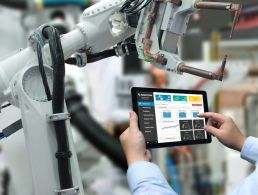Adapt’s Kolawole Adebayo will look at how AI can be leveraged for bias-free recruiting and to boost diversity.
An Irish research project will examine how to use data and artificial intelligence to remove bias from the recruitment process.
The project will be conducted over three years by Kolawole Adebayo, a researcher at Adapt, the Science Foundation Ireland research centre for digital content.
It received funding from Enterprise Ireland and the European Union’s Horizon 2020 programme under a Marie Curie Career-Fit Plus fellowship with a budget of €259,550.
The aim is to use AI to end discrimination in hiring and attract more diverse talent.
“Hiring bias occurs when candidates feel excluded or are considered positively or negatively because of certain characterisations which have nothing to do with their ability,” Adebayo said.
“Hiring bias can lead to undue discrimination of quality candidates from the disadvantaged or minority groups such as women, people of colour, and those in the LGBTIQ community.”
Adebayo’s project, called Laibre, will use advanced natural language processing techniques to eliminate bias across different human resources workflows.
It will implement AI models that can understand the contents of HR documents to extract and remove information that can lead to unconscious bias and discrimination at the attraction and selection phases of hiring.
“For example at the job advertisement phase, Laibre will develop a domain-adapted language model to aid the rewriting of inclusive job adverts; while at the candidate review phase, Laibre will implement a context-aware information extraction model to identify and remove protected attributes such as gender, ethnicity, etc,” Adebayo explained.
“The project will implement models that learn intrinsic candidate suitability patterns from anonymised data for automated candidates review and selection towards skills-based hiring.”
The research will be supervised by Prof Brian Davis of the School of Computing at Dublin City University and the Adapt Centre.
Davis said that considering recruitment is an “economic gateway” for people to access job opportunities and earn income to support themselves and their families, the process needs to be “fair and unbiased”.
“Factors like gender, ethnicity, or sexual orientation should not determine who gets hired or not. Moreover, the issue can be viewed not just from the moral angle but also an economic one,” David said.
“Tackling bias in hiring will potentially reduce ‘bad hires’ while promoting diversity in workplaces, which aside [from] addressing an important equality issue also translates to more innovation, productivity and profitability for employers.”
Adebayo will also work with industry partner Datalive Analytics in Ireland as well as Trinity College Dublin’s Learnovate Centre, which is focused on industry-led edtech research.
A spokesperson from Datalive Analytics said that the company is “building novel solutions for the future of hiring – including elimination of bias from hiring and identification of skill gaps to assist rapid learning and development of employees and jobseekers”.
“The Laibre project will help transform recruitment into an efficient, analytics-based, unbiased and de-risked ecosystem and, for us as a company, it is coming at no better time than this post-pandemic period where fair hiring practices can help put the right candidates to work.”
Don’t miss out on the knowledge you need to succeed. Sign up for the Daily Brief, Silicon Republic’s digest of need-to-know sci-tech news.




